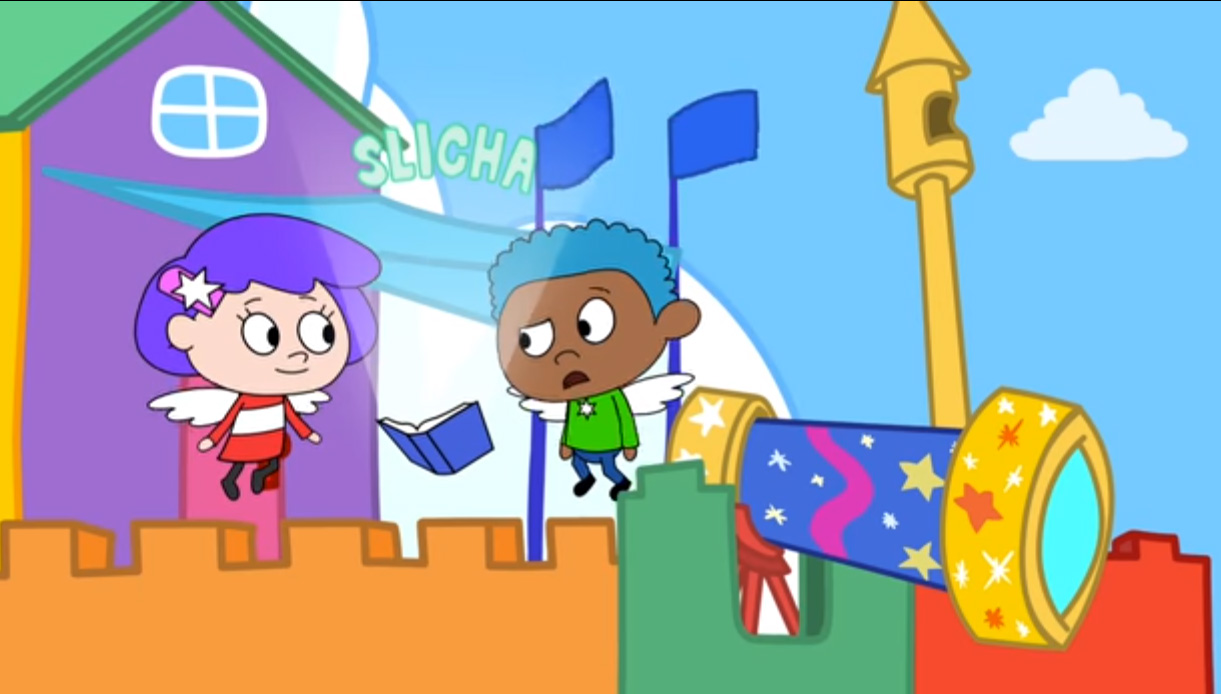
Spilled cereal? “Sorry!”
Broken bongos?
“Oops!”
Overturned plant? “Sorry!”
Stolen comic book?
Accusations fly and tears fall in this episode of the animated series Shaboom! as its characters confront the chaos of careless apologies and misplaced blame. A laser beam trap and giant basketball magically help Rafi and Ben learn that sometimes just saying "sorry" isn’t enough.
Follow-Up Questions
- Why do you think Gabi was upset when Rafi kept cutting her in line after saying he was sorry?
- Have you ever heard somebody say they were sorry and then they did the exact same thing? How did that make you feel?
- Can you think of something you did that may have hurt somebody’s feelings? What can you do to make things better with that person?
- How do you think Papa Plony felt when Ben cleaned up the spilled juice? Can you think of other ways people fixed their mistakes in the video?
Related Activities
- Regardless of the time of year, read about "How to Ready Your Young Child for Yom Kippur" and do some of the suggested activities, including making puppets for the Jonah story and giving food to the hungry.
- Think of things that you could do better for people and write them on a Mitzvah Wheel.
For Parents: What’s Jewish about Saying You’re Sorry?
Jewish tradition tells us sincere apology is one of the four steps in t'shuvah, turning to our best selves:
- Acknowledge/apologize.
- Express remorse.
- Attempt to ‘right the wrong.’
- Never repeat the mistake given the same situation.
For children, this Shaboom! episode cleverly reduces them to two steps: admitting the mistake and ask forgiveness, and fixing the mistake and not do it again. Yom Kippur, literally ‘Day of Atonement,’ is focused around t'shuvah, but we can teach our children and ourselves this important lesson all year-round.
Explore Jewish Life and Get Inspired
Subscribe for Emails